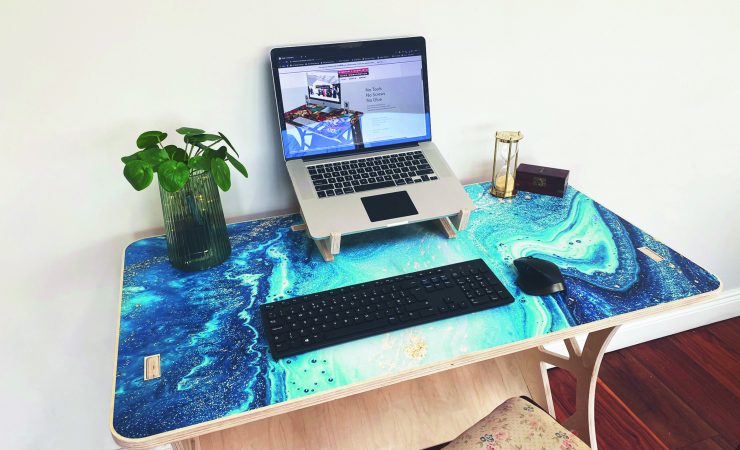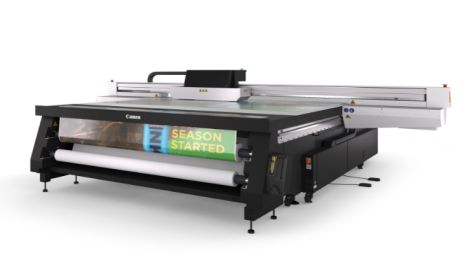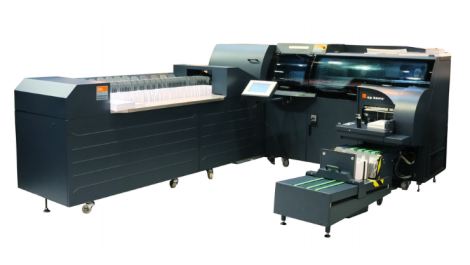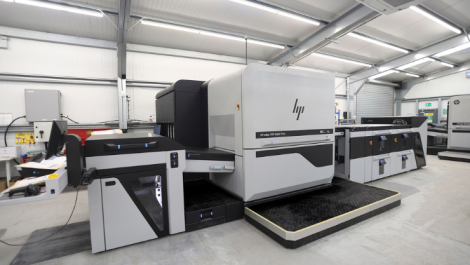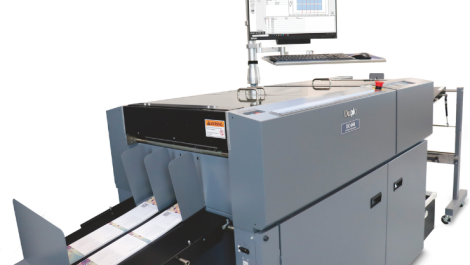On 26 November Digital Printer hosted its first ever virtual event, Digital Re-Set, where people from across the industry learned how six innovative companies opened up fresh lines of business and won new customers during an unprecedented year. Charlie Kortens reports
Over the course of the 90 minute event, host and Digital Printer editor Michael Walker quizzed our panel about how each had evolved and adjusted throughout 2020. That panel was made up of half a dozen printers of all shapes and sizes and with different application focuses and client bases.
Vinehall Displays managing director Gerard McElhinney was the first to step up to the mic. He explained how his company’s events and exhibition work dried up overnight when lockdowns were introduced, with a series of major projects the company was working on having to be shelved.
As a result Vinehall’s leadership was forced to consider how its skills and equipment could be turned in a new direction. The answer was to make personalised working from home desks. ‘We approached everyone just to let them know whatever they needed, we were there,’ explained Mr McElhinney. ‘We found that everybody was working from home and a lot of customers said they were fed up of working on the kitchen table. We have a great team of designers and project managers here so we started offering a working from home desk that people could personalise.’
In contrast, Danny Narey’s Mailing and Marketing Solutions (MaMs) was on slightly firmer ground when Covid struck. The company works with many publishing firms who saw demand for magazines rise and provides direct mail services for many retail businesses, some of whom also saw an upturn. Mr Narey explained that for those customers who were still busy it was a good time to improve their ecological offering, switching from polythene to paper wraps, with MaMs offering personalised wrap options as well. For those who had to close their doors for a while, this gave them time to focus on jobs like improving their use of data or knowledge of customers, so that when they started up again the mail they sent out was more focused and tailored.
Up next was Mark Cottee of BCA Group who explained that even prior to the pandemic he had been investigating the packaging and embellishment spheres. As BCA’s primary work had been in events, lockdown saw its orderbook go from bursting to blank and Mr Cottee decided that the company ‘couldn’t just carry on hoping that things would change, we needed to change them.’
BCA invested in a new flatbed cutter and digital foiling equipment which has opened up new markets for the firm. ‘I knew that if we were going to branch out we had to do it now,’ Mr Cottee said. ‘We had to get the technology under our belts so that we could come out of this period stronger and able to offer a different type of product.’
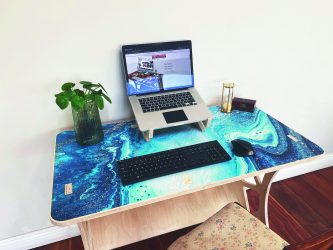
Vinehall Displays has been producing personalised working from home desks during lockdown
Gary Peeling, CEO of the recently-formed Precision ProCo Group explained how his company had explored two distinct lines of business over the course of the year. The first was investigating new Covid-inspired products such as signage and protective screens which opened up new revenue streams and, as Mr Peeling pointed out, kept his workforce busy. The second track was looking back over legacy products such as flyers, booklets and posters and seeing how they could be brought to the forefront during the pandemic. ‘It gave our customers something to talk to their customers about,’ Mr Peeling stressed. ‘Keeping those lines of communication open was vital. We took legacy products but presented them in context and promoted them through social media. It sounds simple but it took time to execute.’
Iain Clasper-Cotte of Northern Flags then took the stage, saying that his contacts with Faber Exposize’s continental operations gave the Leeds-based operation something of a heads-up regarding what was coming. ‘Face masks was something our German company went hell for leather at, but we were always aware that the Far East might sort their supply chain out fairly quickly,’ he said. ‘The Germans ended up with half a million facemasks in a warehouse that they couldn’t sell.’
Mr Clasper-Cotte also stressed the way Covid-19 has helped people know who they can trust. ‘At certain times there were real stock issues and some suppliers were a little bit greedy… we’ve decided who our partners are for the long term because of the way they’ve treated us.’
Nicole Spencer, managing director of wide-format specialist RMC Digital outlined how her company had invested in a new flatbed printer over the course of lockdown and had also rolled out a new MIS system which she described as ‘almost web-to-print,’ and which she said would help her business be in the best possible position for when things return to something approaching normal.
Other developments at Hull-based RMC included the development of a new website, though that has yet to be completely finished. ‘I think the site developers hate me,’ Ms Spencer joked, before finishing, ‘We just took stock, we know we’ve got a viable business and a good team and whilst we had financial support via furlough, we just did what we could.’
A question and answer session followed the panel discussion itself, with the audience asking for insight across a range of topics including labels and packaging, direct-to-garment printing and the return of events and exhibitions.
Digital Re-Set turned out to be a great event, and Digital Printer may well host something similar next year, but let’s not forget the event replaced this year’s Digital Printer Awards, normally the highlight of our calendar. We can’t wait to welcome you all back for the 2021 ceremony, where all 2020 entries will automatically be considered.
Our thanks once again to sponsors Xerox, IFS, EFI and Premier Paper, without whom Digital Re-Set wouldn’t have taken place.
